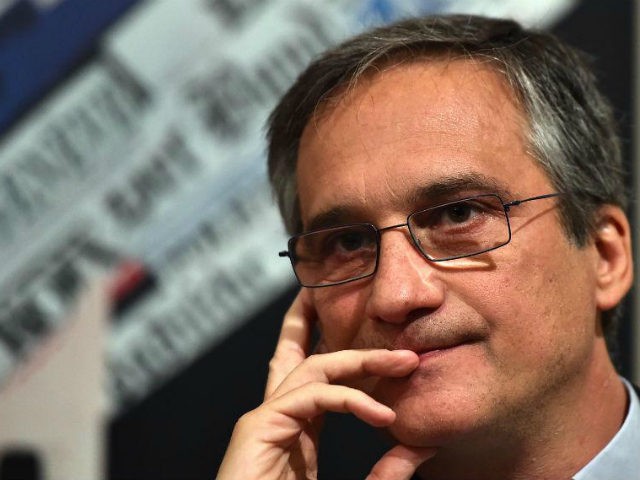The former communications director for the Vatican who was forced to resign after his office digitally altered a photo has delivered a talk on “fake news” at a high-profile conference in Rome.
In late March, Msgr. Dario Edoardo Viganò was obliged to step down from his post as head of Vatican communications when it was learned that a doctored photograph of a letter from Emeritus Pope Benedict XVI had been distributed to journalists. The letter seemed to express endorsement of a collection of books exploring the theology of Pope Francis.
Journalists immediately accused the Vatican communications department of propagating “fake news,” and the Associated Press (AP) said the Vatican’s manipulation of the photograph “violated photojournalist industry standards.” The missing content “significantly altered the meaning of the quotes the Vatican chose to highlight,” AP said, because they “suggested that Benedict had read the volume, agreed with it and given it his full endorsement and assessment.”
The part of the letter offered to the press also omitted a significant passage in which the former pope sharply criticized one of the authors of the series.
In a curious irony, just six weeks after he resigned in ignominy, Msgr. Viganò is lecturing on fake news and journalistic ethics.
During the conference, the prelate spoke on an April 28 panel on “Fake News and the Ethical Responsibilities of Media,” in which he insisted on the need for transparency in the media. Viganò said journalists who publish erroneous information risk “poisoning” their readers.
Transparency on the web “is absolutely urgent,” especially when dealing with big organizations, he said.
The three-day Vatican conference, whose full title was “Unite to Cure: How Science, Technology and 21st-Century Medicine Will Impact Culture and Society,” was organized by the Pontifical Council for Culture together with the CURA Foundation.
In his remarks, Viganò recommended a book called The Job of the Reporter, which he said compares the mission of a doctor with that of a journalist, suggesting that while doctors address the physical well-being of their patients, a journalist influences the mental well-being of his readers.
Journalists, like physicians, have an impact on the well-being of their clients, Viganò said, but journalists can do more harm than doctors because malpractice by a journalist can “poison” many more readers than a physician can.
Viganò insisted that journalists have a “great ethical responsibility,” which grows as the danger of fake news increases.
Fake news began in the garden of Eden, Viganò contended, since the serpent sought to confuse Eve by misrepresenting what God had told her.
While praising traditional media, the monsignor slammed the “new media,” insisting that while the former serves to “build up” public opinion, stories in the new media more often than not “hinge upon non-existent or negligible themes.”
In March, Pope Francis accepted Msgr. Viganò’s resignation and appointed Msgr. Lucio Ruiz, the former secretary of the department, to serve as interim prefect. The pope asked Viganò to stay on at the communications department in an advisory role as “assessor,” which he continues to do.
Follow Thomas D. Williams on Twitter Follow @tdwilliamsrome

COMMENTS
Please let us know if you're having issues with commenting.